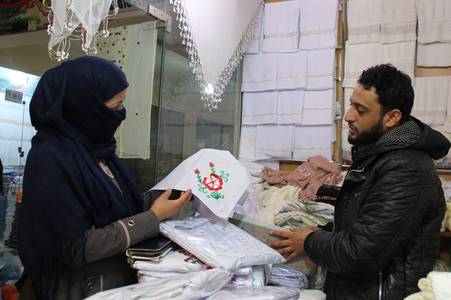Afghan woman says literacy brought her from ‘darkness to light’
A successful graduate says a UNESCO-run literacy programme made her feel more confident and opened up personal and work opportunities she previously hadn’t dreamed about.
Twenty-four-year-old Karima grew up forbidden to go to school – first under Taliban rule and then because of a lack of support from her family who believed that education was unnecessary for women.
In 2014, she took it upon herself to change that and enrolled in UNESCO’s Enhancement of Literacy in Afghanistan (ELA) programme. The difference to her is stark – “like moving from the dark to the light,” she says. “Literacy has given me new hope and motivation in life.”
The resident of Mazare Sharif in northern Afghanistan took the nine month ELA programme run by UNESCO with support from the government of Japan, which offers literacy and skills based literacy classes.
“Joining this literacy course, basically changed my life,” says Karima. “I would always look at myself as an incapable and useless person who could not do anything in life, but now I feel capable. If nothing else, now I can read a book.”
The skills-based focus of the ELA programme paid immediate practical dividends for Karina, who opened her own tailoring and sewing business bring in extra income for her household. Her husband supported the endeavor and she says her literacy skills have given her a stronger voice in her family. “When I was able to read and keep in information, I could make better decisions and could contribute to the household income. It really changed my position in my family and the respect I received,” she says.
Karima also feels more empowered outside of her family. She’s taken on three trainees at the small tailoring workshop she runs out of her house and says that the literacy programme has made her a more confident leader as well as more skilled in her work.
“In the past, I used to sew too but without knowing how to measure and I would make mistakes,” she says. “Now, I measure using a pencil and ruler to draw lines and measure. I feel more professional now.”
Karima has been able to establish good links with local shopkeepers and finds her works are popular at the local market. “Every Tuesday, I take my work and my students’ work to the Mazar-e Sharif’s local bazaar. Our work sells well compared to others,” she says.
The opportunities that the ELA programme have brought have changed her life, she says, and made her realise that it’s never too late to start learning, even for those who, like her, never believed that they would be able to pursue education. “I wish all women could get a chance like this,” she says.



